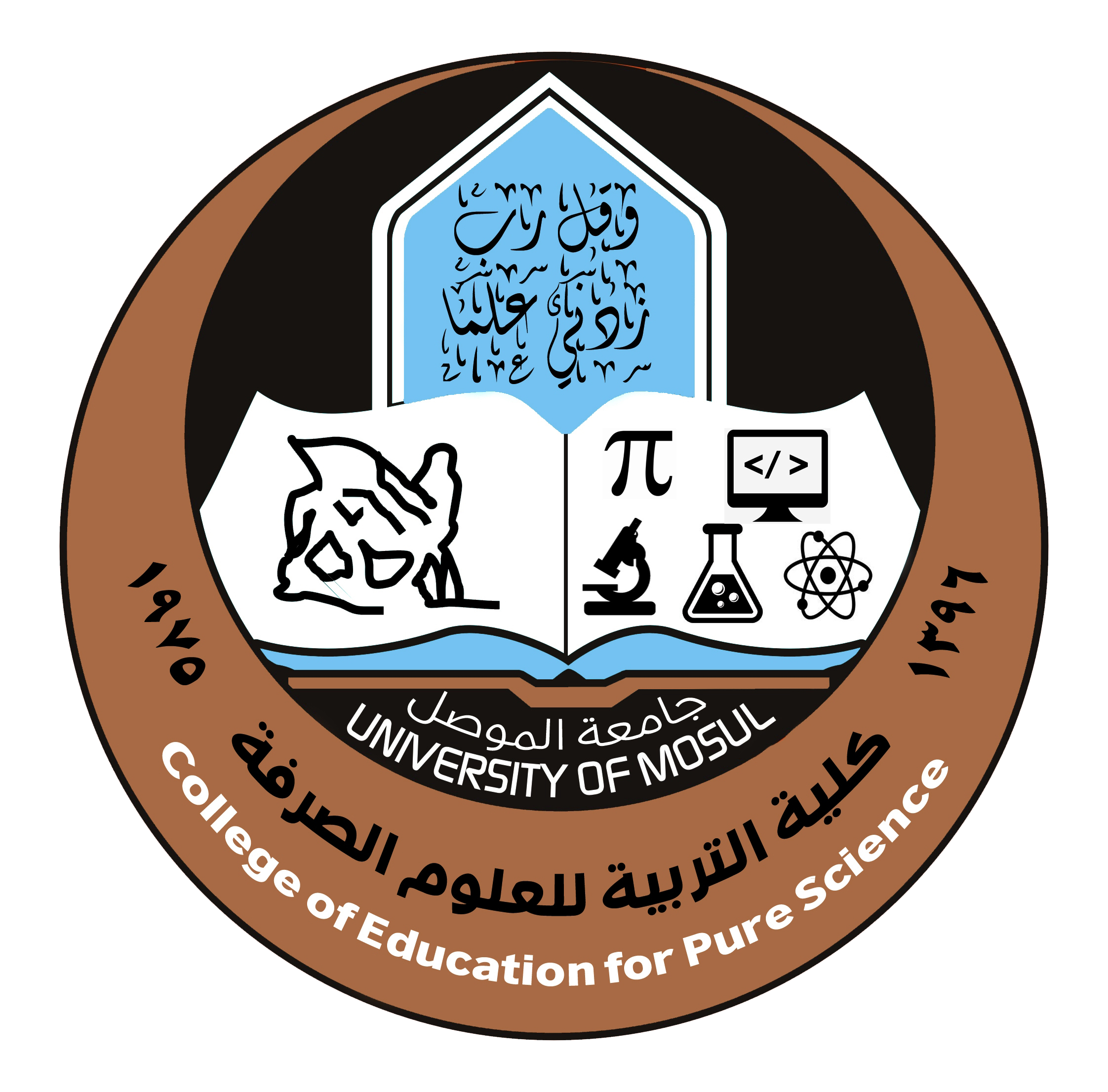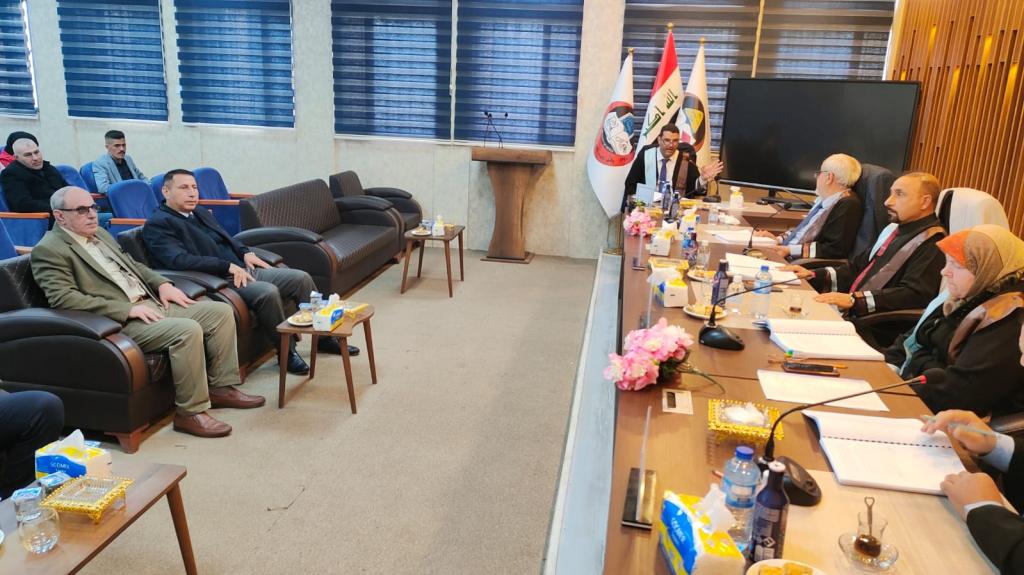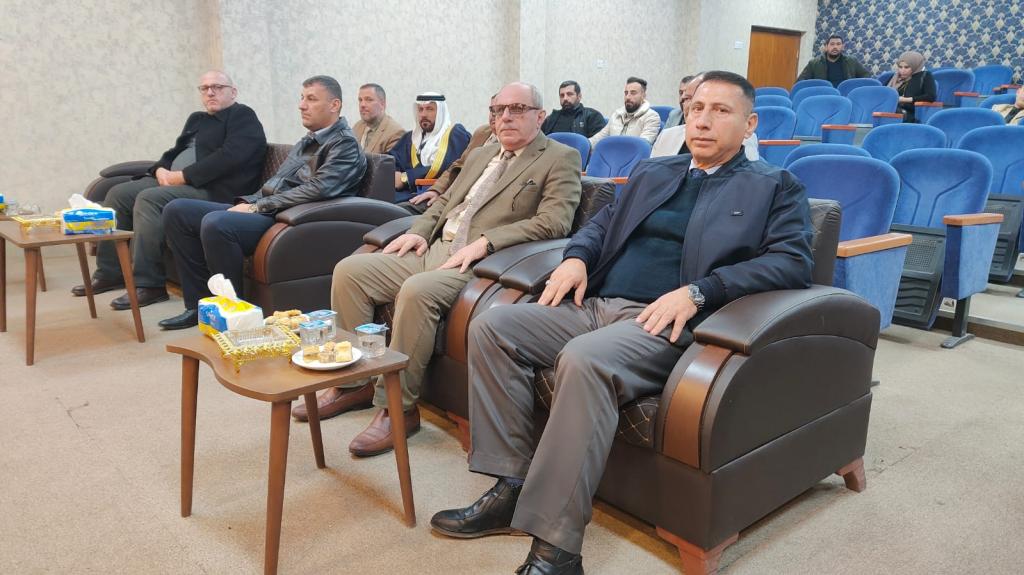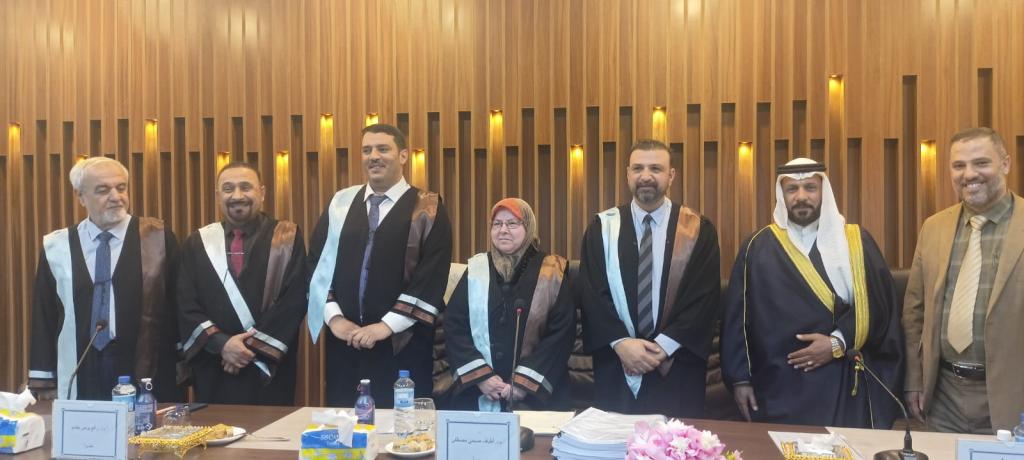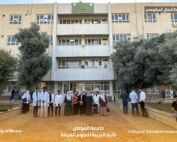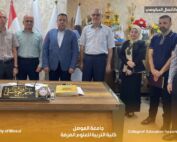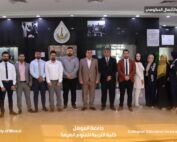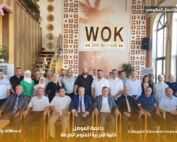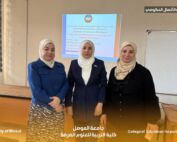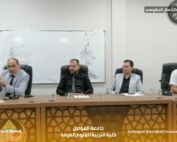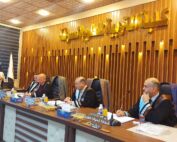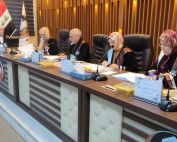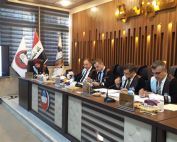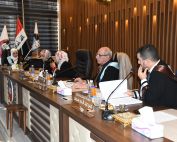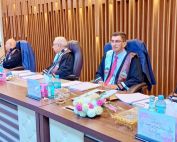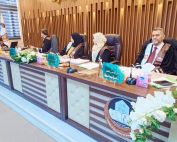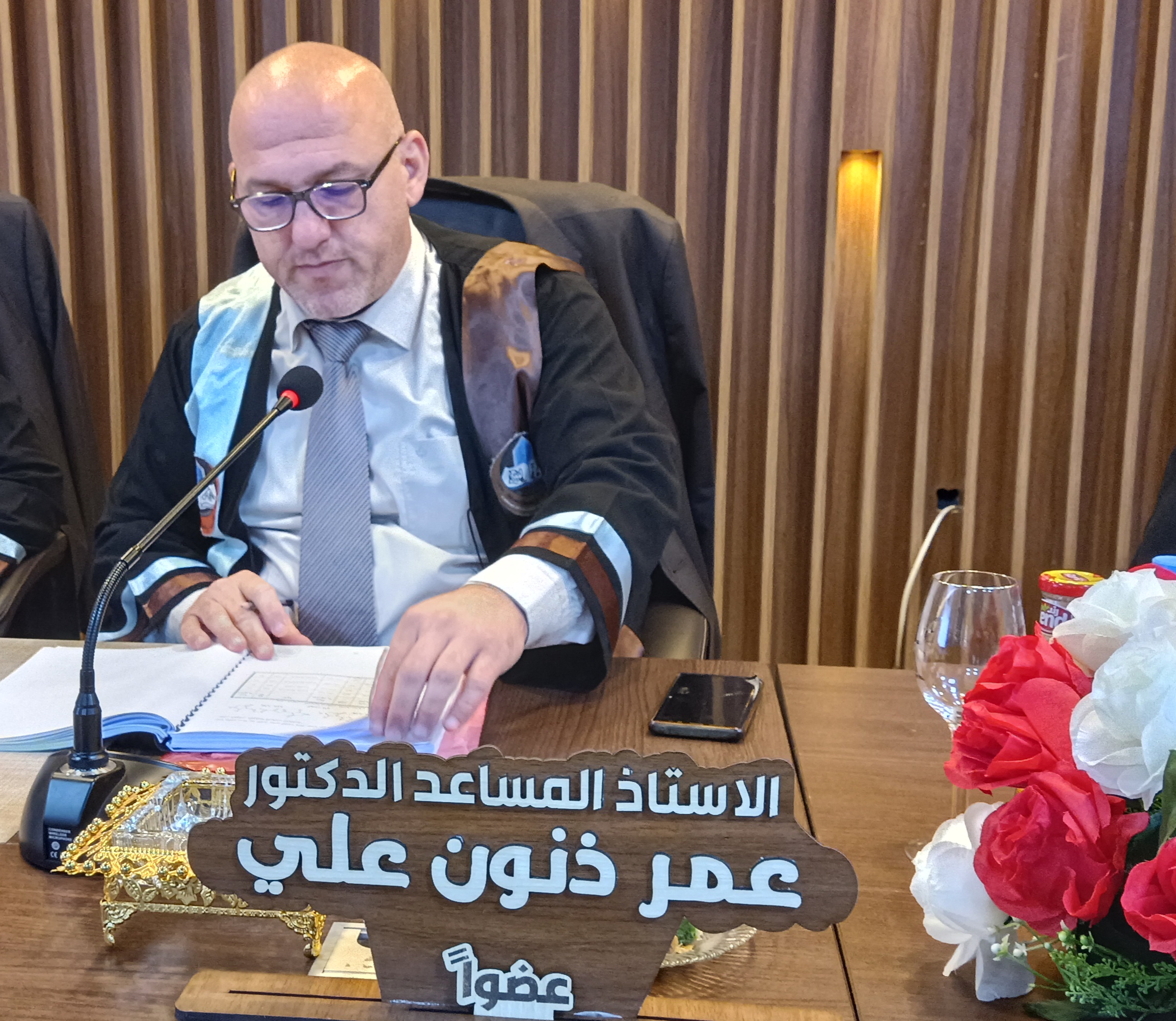7 February، 2023
Master Thesis Viva- Physics Department
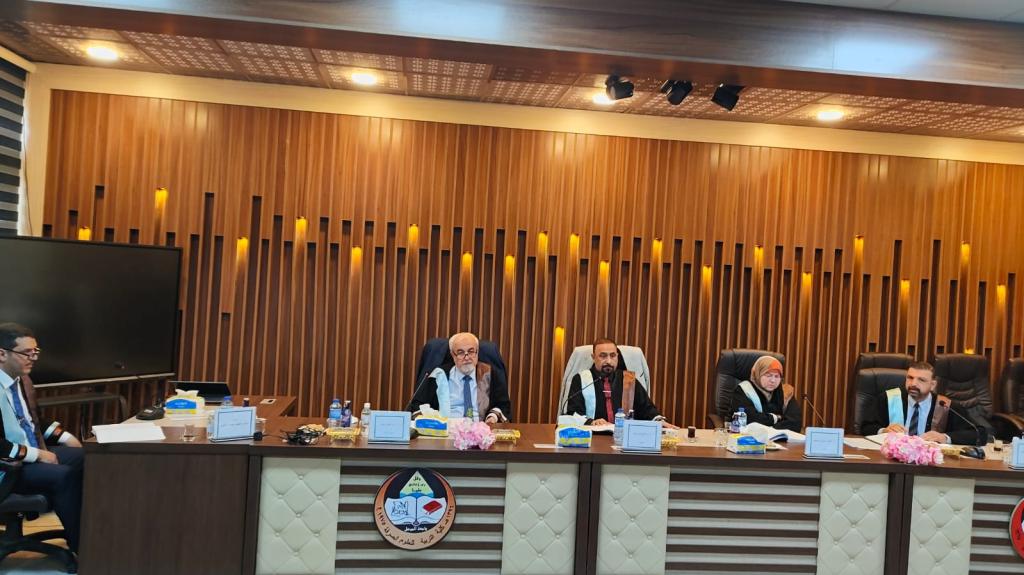
Master Thesis Viva in the College of Education for Pure Science entitled ” Studying the effect of defect on the Performance Solar Cell (CdTe) using SCAPS-1D Simulation Program “The College of Education for Pure Science, University of Mosul, has done the Master Thesis Viva entitled ” Studying the effect of defect on the Performance Solar Cell (CdTe) using SCAPS-1D Simulation Program “,On Twesday, February 7, 2023, the College staff including the respected Dean of the College, Assistant Professor Dr. Qais Ismail Ibrahim, the Honorable Scientific Associate and Administrative Associate, the Honorable Head of the Department of Physics, and a number of the college’s teachers were attended the viva. In this study, presented by the Master student Awadh Khudair Mahmoud in the Department of Physics, and in the first stage of it is to know the effect of defects in the absorption layer and other layers of the solar cell and the interlayer of cadmium telluride cells on the efficiency of the cell.and stability, This part will focus on checking the effect of these defects on their electrical properties In this work, a simulation of the solar cell was selected using the one-dimensional SCAPS-ID program, where the solar cell consisting of five layers( absorber layer(CdTe) with thickness (0.25µm), Windows layer (CdS:O)with thickness (0.025µm )Buffer layer(Zn2Sno4)with thickness(0.05µm), transparent conduction oxide Layer(FTO)with thickness(0.1µm), Back reflection layer(Cu2Te) with thickness(0.1µm), The best results obtained were{=28.07% , FF=86.37% , Jsc=38.07 mA/cm2 , Voc=.058V}.The results showed that when the density of defects in the absorbent layer was different from (109 cm-3) to (1018 cm-3) while keeping the other cell parameters unchanged, as well as keeping the defects density for the rest of the solar cell layers and the interface layer the same, we noticed that the cell parameters {open circuit voltage (Voc), short circuit current(Jsc), Fill Factor (FF), and conversion efficiency ()}.Significantly decreased at high density of defects. We also changed the defect density in each of the permeable layer and the back reflection layer separately, while keeping the rest of the parameters in the absorption layer and the other layers the same. We also worked on changing the density of defects in the interlayer while stabilizing the rest of the parameters, and the results were similar to what we obtained in the absorption layer, where with high concentrations of defects, the cell parameters decrease significantly. We also obtained similar results when we increased the cross-sectional area to capture electrons and gaps in the main layers of the solar cell and the interlayer, except for the absorption layer, which did not affect the increase in the cross-sectional area of capture on the performance of the solar cell. The second stage of this study is to study the effect of temperature on the parameters of the solar cell(FTO/Zn2SnO4/CdS:O/CdTe/Cu2Te), Where different temperatures from (270-400) K were studied, it was found that the efficiency decreases with increasing temperatures. The third stage is to study the effect of series resistance (Rs) as an external factor, and it was found that increasing the series resistance reduces the performance of the solar cell, The effect of parallelism resistance (Rsh) as an external factor was also studied on the performance of the solar cell, as it was found that increasing the parallel resistance improves the performance of the solar cell and increases the output parameters. All phases of the study were installed by installing the default lighting spectrum on the global scale Am1.5, the temperature is 300K, the frequency is 1MHz, and the voltage is 0V. Also, the series resistance (Rs) and parallel resistance (Rsh) were not activated in the first and second stages of the research, considering that the cell is an ideal cell. The simulation results in this work can help researchers to make rational choices of materials and design a cell with high performance and efficiency by controlling factors that can lead to the degradation of cell efficiency.The Viva committee was chaired by Asst. Prof. Dr. Ateaff Subhi Mustafa /University of Mosul / College of Dentistry and the membership of Asst. Prof. Dr Rafie Younis Jassim /University of Tikrit / College of Science, Asst. Prof. Dr. Ghazwan Ghazi Ali /University of Mosul / College of Education for Pure Science and under the supervision and membership of Prof. Dr. Raad Ahmed Rasoul, University of Mosul / College of Education for Pure Science.
